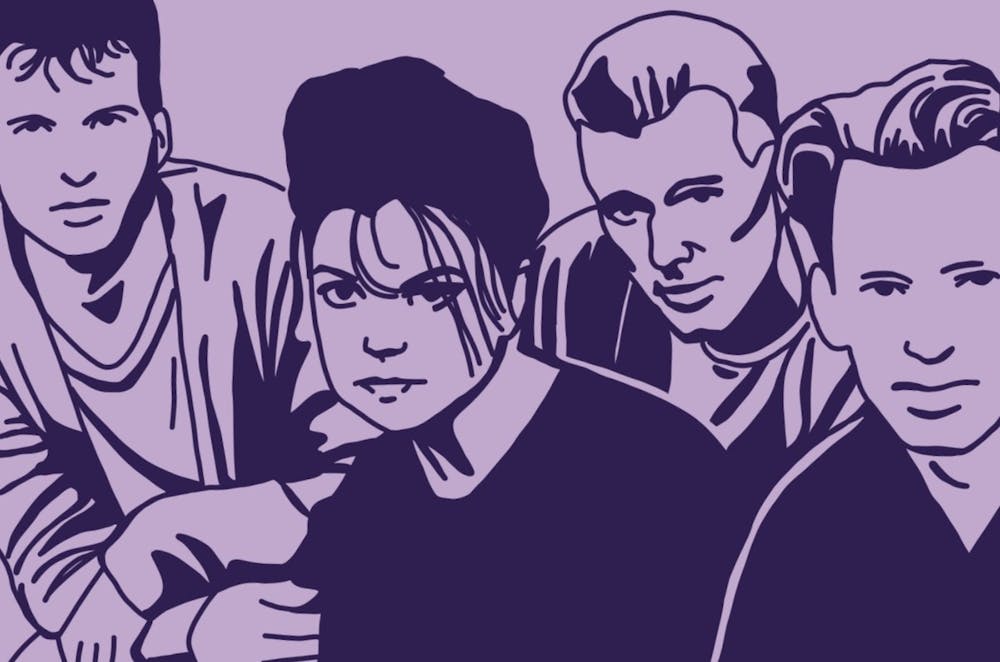It’s hard not to act like a consumer, right? We can all be critical of a consumerist culture — one that values quantity over, say, sustainability, but we can’t critique ourselves for participating within the system when there’s no other option. In this 21st century world, we can get our tortoise-shell blue-light glasses super-deluxe-overnight shipped by robots while we watch Travis Scott’s Fortnite concert on livestream. Convenient? Of course. Dystopian? Sometimes. So yes, I’ll say it — it’s hard not to act like a consumer. But with consumerism comes an entitlement to individual benefit — an entitlement jarringly evident in the music industry.
To me — someone incredibly non-famous — fame seems like a cursed condition. Being perceived is hard enough — but all the time? On vacation? Spare me. But to be a musician seems even more cursed — the constant pressure for new music, creative limitations enforced by invisible executives taking 90% of your profit and undying expectations to redefine oneself without stepping too far out of line. And to top it all off, fanbases are insatiable — always demanding more, expecting more and getting tired of your new creative output in two weeks. That certainly does not sound like my ideal existence. And sure, nowadays that insatiability is exacerbated by social media and streaming service algorithms, but a fandom’s seeming entitlement to music has always been an issue.
That’s why I have such respect for artists who embrace the pre-20th century practice of anonymous artistry — or at least, artistry without human celebrity. It’s obviously not possible to be 100 percent removed from the public eye, but many do their absolute best — Frank Ocean, Daft Punk, MF Doom to name a few. Some make the choice to avoid celebrity, some make the choice to stay sane. In the case of The Sundays — one of the greatest bands of our time — the choice was made to reclaim the rest of their lives.
The Sundays, in their years of output, did everything you’d expect from a successful ‘90s indie band — toured the world, did interviews, signed autographs. Three phenomenal albums between 1990 and 1997 cemented them as legends of the basement party. But after their 1997 release, “Static and Silence,” we received from The Sundays quite literally what they promised — static and silence. Founding members Harriet Wheeler and David Gavurin, within their rights of salvaging a normal human experience, made the choice to focus their energy on their marriage and their two young children — and we haven’t heard new music from them in 23 years.
As a fan, I have two choices — wallow in self-pity knowing The Sundays are sitting on music I’ll probably never hear, or, more rationally, take time to appreciate what I’m so lucky to have heard in the first place. Today, I’m going with option two. Today, let’s celebrate The Sundays.
Picking the greatest song of all time is enough of a mind-bending task, but picking it from just one band? Impossible. Cases could be made for every single transcendental track in their 34-song catalogue. Just the way Wheeler sings the word “fashion” on “Another Flavour,” the way she sings “sleepwalking” on “Leave this Town,” the way she sings that indiscernible auditory mosaic toward the end of “Goodbye” — all of these instances make their case with one singular, isolated vocal acrobatic. But today, we’re talking about “When I’m Thinking About You,” the greatest song ever created.
Ballads are always described the same way — intimate, stripped back, moving. However cliche and mundane these descriptions might be, it’d be unfair not to name them while ogling at the song’s simplistic, gravitational beauty. “When I’m Thinking About You” provides a soundscape of romantic astonishment, like turning on the TV in the maybe-not-so-distant future and seeing the first batch of Mars residents moving into their homes — neighbors greeting neighbors, flags dancing in the wind, succulents in window sills to distract from the fire-red, lifeless clay blanket. An incomprehensible, bewildering, foreign daydream — a daydream that you can’t help but stare at forever.
Harriet Wheeler’s haunting, twinkling voice does its part to pull you inside the hypnotism. She sings about a daydream of her own — her daydream being, well, significantly less mystifying. She sings about lulling into a tender daydream about a distant love amidst a sea of monotony. Wheeler’s pristine vocals — equal parts icicle and hellfire — drizzle their romantic rain through a trademark soul-affirming chorus. In the second verse, she perhaps unintentionally describes her voice perfectly, singing “Two-minute hailstorm then melts into rain / sing me a rainbow it's sunny again.” “When I’m Thinking About You” is dreampop utopia, and with Harriet Wheeler as its overlord, the clouds congregate and dissipate at her command.
As a consumer — and more importantly, as a fan — I’ll always want more music from The Sundays. Always. They have a flawless catalogue, so near and dear to my heart, but comprising just three albums. And look, if they want to give us album four — some day, somehow — my lips are sealed. I’ll take it. But it’s hard not to deeply respect the decision they made — the decision they continue to make to this day. They chose to live for life. They subverted the normative relationship between producer and consumer, artist and fan, machine and machine. Unto the world they gave their gift, and into the world they kept on living. And into the world I’ll keep living too, soundtracked by The Sundays — rarities collection or not.
Keep up with all of Stefan's best songs of all time with our official Tied for First playlist.







